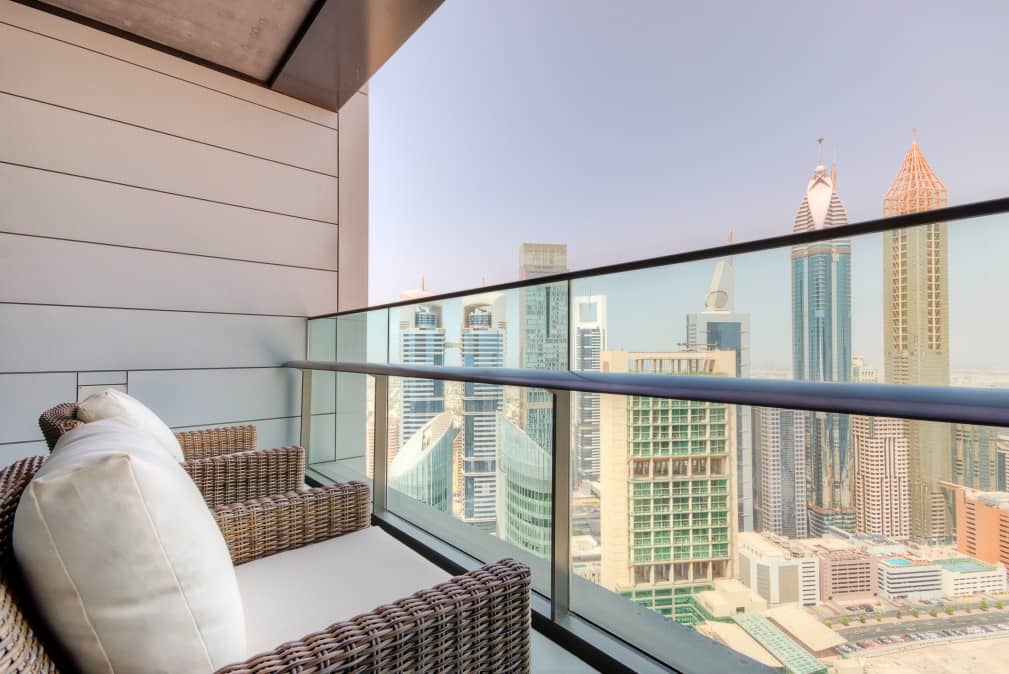Dubai’s real estate market is predicted to stay tenant-friendly over the most beneficial classes as a result of softened demand and bigger levels of vacancy, as per leading industry experts.
Previously this week S&P Global Ratings provided that the emirate’s population decreases by 8.4 percent in the previous year, the sharpest decline in the Gulf region, as emigrate workers were asked to leave amid the economic disruption wrought by the coronavirus pandemic.
“In residential rental markets, even with employment levels expected to pick up in 2021, we expect that rental rates will continue to decline at material rates,” Taimur Khan, head of Research at Knight Frank Middle East, told Arabian Business.
“In Dubai, due to influx of supply and existing vacancy, which has increased by 1.8 percentage points over the course of 2020 to 18.3 percent, the rate of decline is only expected to moderate marginally. Therefore, the market will be heavily tenant-favored for the foreseeable future particularly as employment is only expected to return to 2019 levels by 2023.”
The population fall in Dubai – the Middle East’s hub for business and tourism – in comparison with a 4 percent decline for the six-nation Gulf Cooperation Council, as per the S&P predictions.
Edward Macura, the partner at Dubai-based Core, told Arabian Business: “While population and household incomes have contracted and the impact of Covid-19, coupled with oversupply issues have pushed price recovery further ahead, we are starting to see resilience in the market.”
He said that the emirate’s residential secondary market deals witnessed a seven percent rise in 2020 in comparison to 2019 volumes and, in relation to January and February of this year, they were increased by 36 percent in comparison to the same two-month period of last year.
In any case, he said off-plan market movement contracted altogether by 32% year-on-year, a pattern which he hopes to proceed with this year.
He said: “Overall, we are starting to see stabilization in average villa sales prices since Q4 2020 with prices showing continued marginal upticks for the first time since 2014. However, apartment districts maintain their downward trajectory and are yet to show signs of plateauing.”
A property excess and floundering request in the Middle East’s business center has driven costs somewhere near in excess of a third since the market crested about seven years prior.
Property broker JLL said in January that Dubai developers are likely to continue a high supply momentum this year, raise that means two more years of cost loss. The chief of Damac Properties PJSC, one of Dubai’s largest developers, said last month it will take a minimum of one to two years for the real estate market to get out of its recession.
However, the real estate market in Dubai may “bottom out” in the upcoming year after weathering a tough 2020, as per S&P Global Ratings.
“We already had a supply and demand imbalance in the market even before the pandemic, and after Covid-19 the situation just got worse,” S&P analyst Sapna Jagtiani told Bloomberg TV on Tuesday. “Prices of residential and office spaces in the city are expected to “somewhere bottom out in 2022.”
Any effect on the emirate’s land industry because of the drop in population might be balanced by new strategy activities pointed toward supporting the UAE’s private area, including Dubai Land Department’s ‘partial title deed’ conspire, Dubai’s new distant working visa, and the dispatch of another retirement program.
“The emirate’s new remote working visa should also ease the impact on rental demand, with Dubai well placed to attract the growing number of professionals seeking to explore relocation options internationally,” said Chris Hobden, head of the strategic consultancy, Chestertons MENA.
“With work-from-home policies continuing within the private sector, even if on a part-time basis, tenant demand for more extensive residential accommodation looks set to remain strong, and we expect villa rents to continue to outperform the wider residential average over the year ahead.”
Faraz Ahmed, associate, research – JLL MENA, added: “While uncertainty will persist in 2021 and the recovery will vary across sectors and industries, accelerating digital capabilities and focusing on sustainable performance can redefine business success.“
